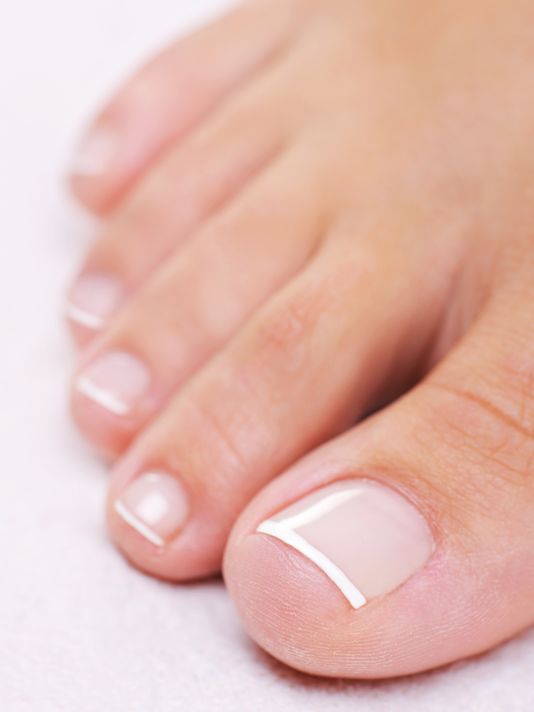Blog Information
- Posted By : suncoastpodiatry suncoastpodiatry
- Posted On : Aug 29, 2022
- Views : 151
- Category : General
- Description : One of the most common foot problems addressed at a foot and nail clinic is ingrown toenails.
Overview
One of the most common foot problems addressed at a foot and nail clinic is ingrown toenails. Based on the severity of the condition, the treatment and recovery may differ. It is recommended to resist the urge of doing bathroom surgery and seek professional ingrown toenail treatment by a foot doctor at the earliest stage.
Some people have to struggle with recurring episodes of toenails curling back or digging in. To avoid painful situations , ingrown toenail surgery is an ideal solution. No need to deal with the discomfort every now and then; just get your toenail treated once by a podiatrist and you get an almost permanent solution. It is highly recommended to get your toenails surgically removed if:
- the toenail keeps curling or digging in every time you trim it
- if the ingrown toenail is extremely painful and affects the quality of life
- if the redness and swelling are showing some signs of infection

When some people hear the word surgery, shivers go down their spine. No need to worry about ingrown toenail surgery, it is a minor minimally-invasive surgery that won’t cause seriousdiscomfort. Let’s discuss the process of surgery and the path to recovery.
What happens during the ingrown toenail surgery?
When you visit a podiatrist’s clinic for treatment, a foot doctor examines your condition and decides on a suitable treatment plan. Based on the intensity of the problem, there are two types of surgical options offered by the doctors:
- Partial nail avulsion: In this surgical method, the toenail is removed partially. Doctors would opt for this relatively quick and simple procedure in mild cases. The nail can be left attached and only removed partially if the condition is not severe.
The surgical procedure can be completed within an hour. It has a high success rate and offers a near permanent solution to the problem.
- Total nail avulsion: In this method, the entire nail is removed. This option is carried out when the toenail and bed is severely damaged. Foot doctors suggest total nail avulsion only in rare cases as the recovery is faster in partial avulsion and is generallypreferred. The total nail avulsion method does have a higher success rate and recovery rates can be rapid, when executed by a certified surgical foot doctor.
Below is a step by step discussion of the surgical procedure, demonstratinghow quick and simple the treatment procedure is.
- After an in-depth assessment and proper physical exam, the surgery site is numbed using a local anaesthetic.
- Then a tourniquet is applied to restrict blood flow to the toe.
- In the next step, the toenail is carefully removed from the nail plate.
- Then the toe is dressed using an ointment and the patient can be released.
What is involved in the aftercare of the surgery?
Aftercare is essential for faster recovery and success of the treatment. When you leave the clinic after the surgery, you need to come back for a postoperative assessment after 48 hours. To keep the toe clean and quickly healing, here is a list of recommendations given by foot doctors:
- Once the surgery is completed, you need to wear open toe shoes, so make sure you bring them to the foot and nail clinic.
- Bleeding is expected, don’t panic, just rest and keep weight off the foot for the next 48 hours.
- It is recommended to apply the dressing given by the doctor to keep the toe dry and clean.
- The surgery is performed under anaesthetic, when it wears off, over the counter painkillers can be taken to relieve the discomfort
- It is advised to avoid gym and weightlifting or any strenuous activity until six weeks after the surgery
How long does the recovery take?
It is expected that you follow all of the above mentioned after-care instructions carefully. 48 hours of complete rest and avoiding strenuous activities are essential for faster recovery. Partial nail avulsions have a higher success rate and rapid recovery. Therefore, it is advised to visit the podiatrist as soon as you notice the ingrown toenail.
Usually, two weeks of post-surgery care is needed and the toenail might take around six weeks for complete healing and full recovery. Ifyou fail to keep the surgical site clean and dry, there might be a risk of infection. Any mild infection can be treated easily with oral antibiotics and patients are advised to go for a follow-up appointment to keep things under control.
What do you need to know about ingrown toenail surgery?
Ingrown toenail surgery has a higher success rate. A re-do of the procedure is needed in rare cases. Although there are generally no complications, the procedure may be uncomfortableif infection was already present at the surgical site. Sometimesseverely affected toenails can’t be removed immediately and doctors might need to put you on a week or two of antibiotics course in preparation for your surgery..
The pain and discomfort are minimal during the recovery period and can be handled with oral medicines. If you want to swim, wear tightly fitted shoes or go back to your weightlifting routine, make sure to discuss the expectations with the foot doctor prior to the surgery. Open toed shoes and proper rest is expected for at least a week to promote healing.
Visit Suncoast Podiatry Clinic to learn more about the surgical options suitable for you and the cost of the treatment. They have highly experienced podiatrists who offer specialisedsore feet treatment, diabetic foot care, fungal nail laser treatment, ingrown toenail surgery and more.
https://www.suncoastpodiatry.com.au/book-appointment/
